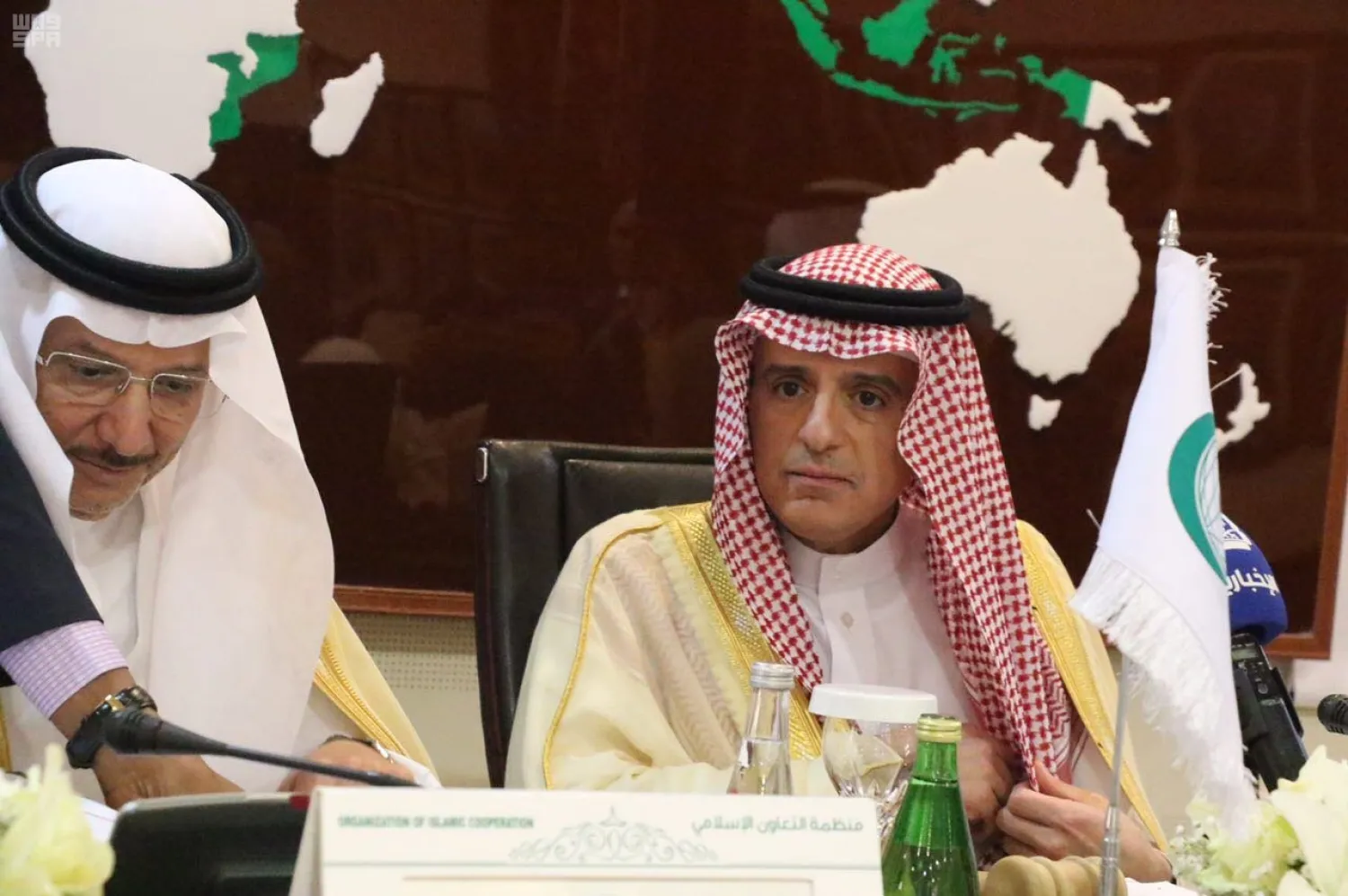Saudi Foreign Minister Adel al-Jubeir reiterated the Kingdom’s accusations that Iran was still supplying arms and missiles to the Houthi militias in Yemen, adding that it was stoking sectarianism in the region.
"The Iranian regime still continues to smuggle weapons and missiles to the Houthi militias in Yemen with the aim of attacking the Kingdom, its people and its vital interests,” he said during the emergency meeting of the Council of Foreign Ministers of the Organization of Islamic Cooperation (OIC) in Jeddah on Sunday, which was held upon the request of Saudi Arabia.
The minister said that the firing of Iranian ballistic missiles from Yemen demonstrates that the regime is continuing in its aggressive approach of supporting terrorism and blatant interference in the affairs of regional countries.
He noted that the number of these missiles has exceeded 300, including 90 targeting various regions of the Kingdom, mainly Makkah.
Jubeir explained that the emergency meeting was held to take urgent action against the launch of Iran-manufactured ballistic missile towards Riyadh by the Houthis, which is a violation of the OIC charter and United Nations and international laws and resolutions, especially Security Council resolution 2216.
During a press conference on the sidelines of the emergency meeting, he said in response to a question on whether Iran will be suspended or removed from the OIC: "We are looking into available options, and the decision will not be made at a press conference. Houthis are Iran's tool in Yemen to implement its agenda there just as ‘Hezbollah’ implements its agenda in Lebanon."
He accused Tehran of adopting aggressive and negative policies, inciting sectarian strife, interfering in regional affairs, disrespecting neighborly ties, supporting terrorism and violating international resolutions on the use of ballistic missiles.
“The foreign ministers of the members of the OIC have unanimously agreed, for the second time, to condemn Iran's policy and request that it cease. We will continue to address these hostile policies,” the Saudi minister added.
OIC Secretary General Yousef al-Othaimeen, for his part, condemned the actions of the Houthi militia and its refusal to comply positively to the UN and regional efforts to resolve the Yemen crisis through peaceful means.
He expressed solidarity with Saudi Arabia and backed all the actions taken by the Kingdom to protect its territory.









